Ancient writers are known for sometimes considering women to be minor, unimportant, and perhaps not fully human. In the Gospels, that is far from the case. Women are not presented as lesser or one-dimensional beings. They are presented as people who show the full range of human agency, experience, and potential. Consider the array of characters we find just in the Gospel of Mark.
Sometimes women are simply recipients of grace such as Peter’s sick mother-in-law who was healed by Jesus or Jairus’s daughter whom Jesus raised from the dead (Mark 1:30-31; 5:21-24, 35-43). They are no less deserving of divine attention than men, regardless of their age or position.
In 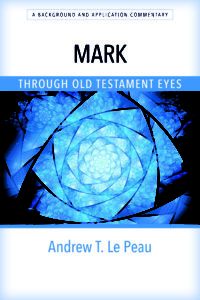 other cases women are honored overtly for taking public initiative to show their faith against the pressures of culture and circumstances. These include the woman who was sick for twelve years, the Gentile woman whose daughter was possessed, the widow who gave sacrificially to the Temple treasury, and the woman who anoints Jesus at Simon’s house with very costly perfumed oil (Mark 5:25-34; 7:24-30; 12:41-44; 14:3-9).
other cases women are honored overtly for taking public initiative to show their faith against the pressures of culture and circumstances. These include the woman who was sick for twelve years, the Gentile woman whose daughter was possessed, the widow who gave sacrificially to the Temple treasury, and the woman who anoints Jesus at Simon’s house with very costly perfumed oil (Mark 5:25-34; 7:24-30; 12:41-44; 14:3-9).
At least one woman is presented as evil. Herodias had long wanted to have John the Baptist killed for speaking against her divorce from Philip and marriage to Herod. When the opportunity arose, she callously used her daughter to have John executed without cause (Mark 6:17-29).
Women are also shown to have a complex mixture of faith and fear. Several bravely stood near the cross when Jesus’ male followers had deserted him. Yet two days later, after seeing the angel at the empty tomb, they fled in terror, afraid to tell anyone what they saw and heard (Mark 15:40-41; 16:1-8).
In short, women are presented much as men are—sometimes passive, sometimes evil, sometimes flawed, sometimes courageous. In the ancient world women were rarely allowed to hold positions of responsibility and were often treated much like servants. In contrast Jesus and the Gospel writers see women as full participants in the drama of humanity and of the kingdom.

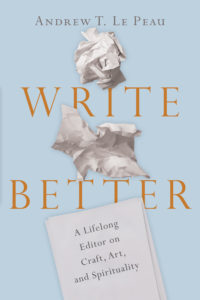
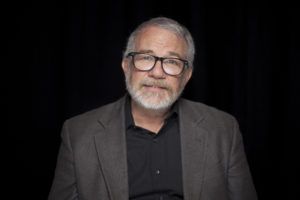 is often a dirty word these days. In the book I suggest how this time-honored skill can and should be redeemed and rehabilitated.
is often a dirty word these days. In the book I suggest how this time-honored skill can and should be redeemed and rehabilitated.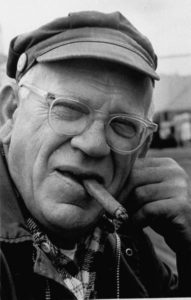 is hard to categorize this book. Hoffer, a longshoreman by trade, was called a self-educated philosopher but the book is more one of social and political psychology. He is dense, pithy, provocative, and intensely insightful. Each sentence is like an aphorism that could bloom into a book.
is hard to categorize this book. Hoffer, a longshoreman by trade, was called a self-educated philosopher but the book is more one of social and political psychology. He is dense, pithy, provocative, and intensely insightful. Each sentence is like an aphorism that could bloom into a book.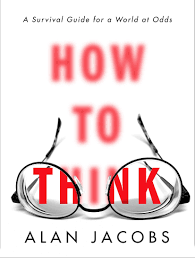
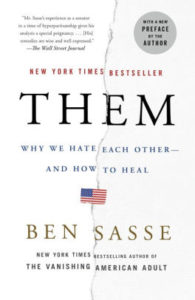
 Rather than merely presenting each person in isolation, Evans shows how each one built on and often reacted against those who came before. Key turning points and emphases are highlighted as well. Socrates shifted the conversation from “What is real?” to “What is the good?” Descartes inaugurates modern philosophy by seeking to start from ground zero and focus on “How can I know?” And “modern philosophy may begin with doubt, but ancient philosophy clearly began with wonder” (p. 577).
Rather than merely presenting each person in isolation, Evans shows how each one built on and often reacted against those who came before. Key turning points and emphases are highlighted as well. Socrates shifted the conversation from “What is real?” to “What is the good?” Descartes inaugurates modern philosophy by seeking to start from ground zero and focus on “How can I know?” And “modern philosophy may begin with doubt, but ancient philosophy clearly began with wonder” (p. 577).